
Fang Shilong, known professionally as Jackie Chan, is a Hong Kong actor, director, writer, producer, martial artist, and stuntman known for his slapstick - acrobatic fighting style, comic timing, and innovative stunts, which he typically performs himself. Before entering the film industry, he was one of the Seven Little Fortunes from the China Drama Academy at the Peking Opera School, where he studied acrobatics, martial arts, and acting. In a film career spanning more than sixty years, he has appeared in over 150 domestic and international movies. Chan is regarded as one of the most iconic and influential martial artists in the history of cinema.
Double Trouble may refer to:
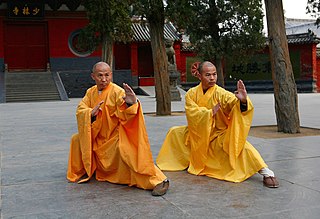
Fong Sai-yuk is a semi-fictional Chinese martial artist and folk hero from Zhaoqing City, Guangdong Province of the Qing dynasty. Fong was also associated with Hung Hei-gun and the Five Elders of the Southern Shaolin Monastery. He was a disciple of Shaolin and his martial arts techniques were considered to have contributed to the development of Hung Ga Kuen.
The Karate Kid is a 1984 film.
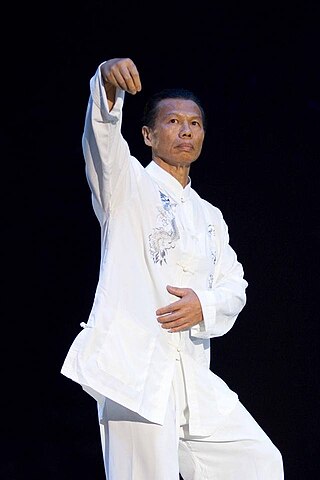
Yeung Sze, better known as Bolo Yeung, is a Hong Kong former competitive bodybuilder, martial artist, and actor. Primarily known for playing villains in action and martial arts films, he is regarded as one of the most influential actors in martial arts cinema.

Bruceploitation is an exploitation film subgenre that emerged after the death of martial arts film star Bruce Lee in 1973, during which time filmmakers from Hong Kong, Taiwan and South Korea cast Bruce Lee look-alike actors ("Lee-alikes") to star in imitation martial arts films, in order to exploit Lee's sudden international popularity. Bruce Lee look-alike characters also commonly appear in other media, including anime, comic books, manga, and video games.
Kung Fu master or Kung Fu Master may refer to:
Angela Mao Ying is a Taiwanese actress and martial artist who appeared in martial arts films in the 1970s. One of the most prominent martial artist actresses of her time, she is nicknamed "Lady Whirlwind" and "Lady Kung Fu". She was positioned as a female version of Bruce Lee.
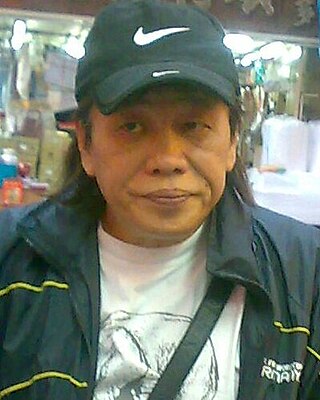
Bruce Liang is a Hong Kong martial artist and actor who has appeared in many Hong Kong martial arts movies. He often appeared billed as "Bruce Leung", "Bruce Liang", "Bruce Leong", or "Bruce Leung Siu-lung", and is thus generally grouped among the Bruce Lee clones that sprang up after Lee's death in the subgenre known as Bruceploitation.
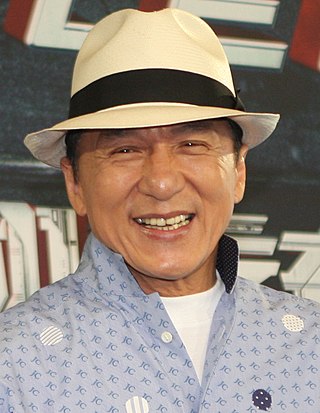
Jackie Chan began his film career as an extra child actor in the 1962 film Big and Little Wong Tin Bar. Ten years later, he was a stuntman opposite Bruce Lee in 1972's Fist of Fury and 1973's Enter the Dragon. He then had starring roles in several kung fu films, such as 1973's Little Tiger of Canton and 1976's New Fist of Fury. His first major breakthrough was the 1978 kung fu action comedy film Snake in the Eagle's Shadow, which was shot while he was loaned to Seasonal Film Corporation under a two-picture deal. He then enjoyed huge success with similar kung fu action comedy films such as 1978's Drunken Master and 1980's The Young Master. Jackie Chan began experimenting with elaborate stunt action sequences in The Young Master and especially Dragon Lord (1982).
Philip Kwok is a Hong Kong–based Taiwanese actor, martial artist, and stuntman. He rose to fame as a member of the Venom Mob, an ensemble of martial arts actors who starred in several films for Shaw Brothers Studio in the 1970s and 1980s. He played "Mad Dog", the main villain's henchman with high morals in John Woo's Hard Boiled (1992).
Kevin Chu or Chu Yen-ping is a Taiwanese film director. Chu once said in an interview that he is "not an artist," but rather "a movie factory that puts out products to match the season", and is compared to Hong Kong director Wong Jing.
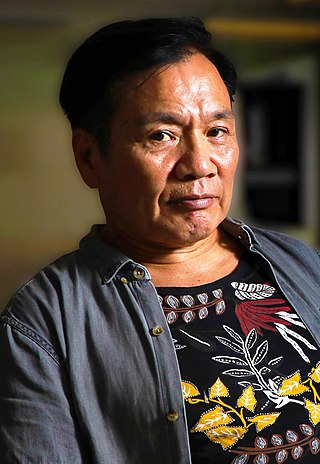
Lo Mang is a Hong Kong martial artist and actor who was born in Hong Kong on 23 July 1952. Primarily known for starring in Shaw Brothers kung fu movies during the latter part of the 1970s and into the 1980s. He is a member of the famous ensemble known as the Venom Mob who were renowned for their martial arts and acting skills.

Louis Fan Siu-wong is a Hong Kong actor and martial artist. He is best known worldwide for his starring role as Ricky in Riki-Oh: The Story of Ricky (1991) and as Jin Shanzhao in Ip Man (2008) and Ip Man 2 (2010), as well as roles in numerous television series produced by TVB.

Hsu Feng is a Taiwanese-born actress and film producer. In the 1970s she was one of the leading actresses of the cinemas of Hong Kong and Taiwan, particularly known for her roles in wuxia films and her work with director King Hu. In 1981 she retired from her career as an actress, but a few years later she returned to the film industry as a producer and went on to produce several award-winning movies. Among them was Chen Kaige's Farewell My Concubine, which won the Palme d'Or (1993) and the BAFTA Award for Best Film not in the English Language (1994) and was nominated for an Academy Award and a César for best foreign film as well.
Shaolin Popey is a 1994 Taiwanese kung fu comedy film directed by Kevin Chu. The movie premiere was on 21 July 1994. It is starred Lin Zhiying, Xu Ruoxuan, Hao Shaowen, Shi Xiaolong, and Zhang Zhenyue. Lin Zhiying and Zhang Zhenyue also sang. The movie tells the story of a young boy who helps his older brother to win the love of a girl. It is a youth comedy. The hero celebrity is Lin Zhiying, little comedian Jimmy Hao Shao Wen, the mainland kung fu boy Shi Xiaolong. Singer Zhang Zhenyue and Taiwan's new pure girl Xu Ruoxuan have become big highlights of the film, and the performance of Hong Kong stars Xu Haoying, Yuan Qiong Dan, Qin Pei can not be ignored. The movie itself has two related film spin-offs, Messy Temple (笑林小子2之新烏龍院) and Super Mischieves (新烏龍院2之無敵反鬥星).
Phillip Ko-fei was a Hong Kong–based actor, screenwriter and film director.
Eagle Han-ying, Korean name Kim Young Il (김영일) was a South Korean actor and martial artist, who rose his fame in South Korea through various Korean drama series from the 90. Outside of Korea, he is best known with his appearance with many kung fu films from the range of Korean, Hong Kong and Taiwanese production.
Chui Chung-San was a Hong Kong actor, director, choreographer, martial artist and stuntman. He was known for being an action director and stuntman. Chui was known for films such as The Rebellious Reign, Kung Fu Vs. Yoga, Two Fists Against the Law and 7 Grandmasters as well as other various Hong Kong and Taiwanese television shows.








